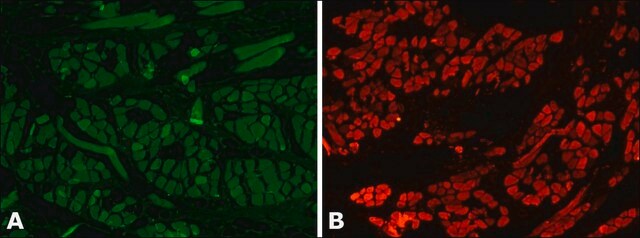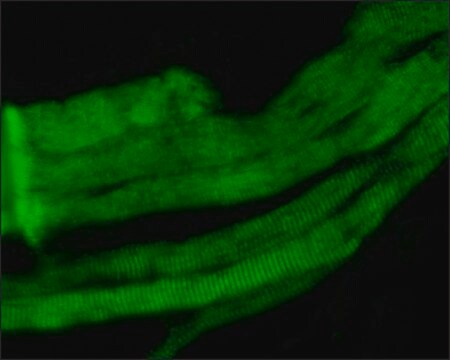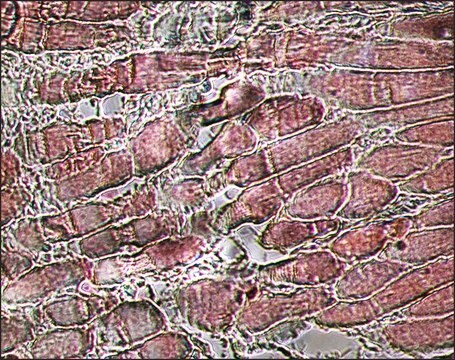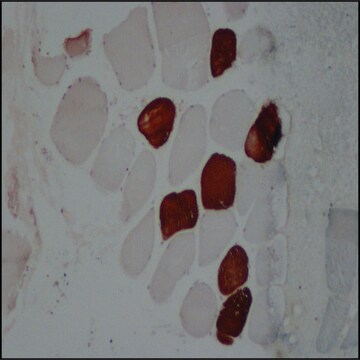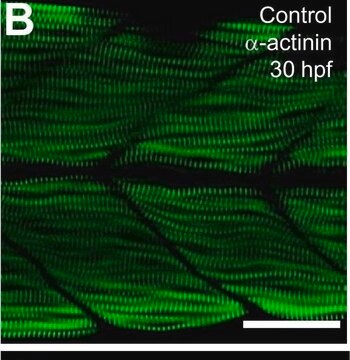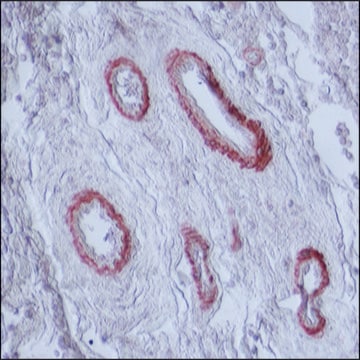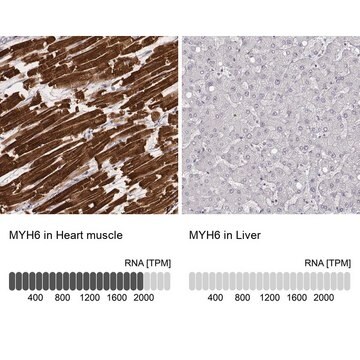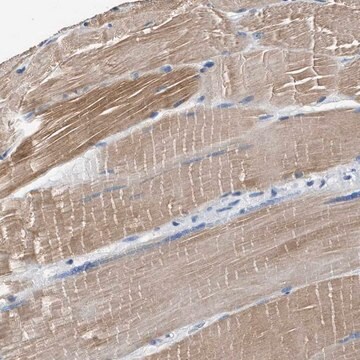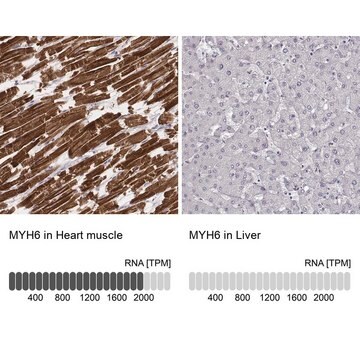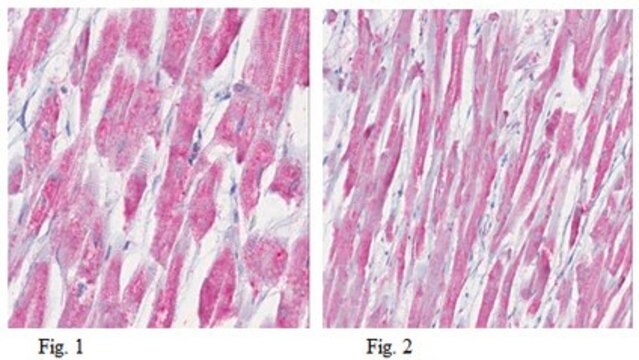M8421
Monoclonal Anti-Myosin (Skeletal, Slow) antibody produced in mouse
clone NOQ7.5.4D, ascites fluid
Sinonimo/i:
Anti-CMD1S, Anti-CMH1, Anti-MPD1, Anti-MYHCB, Anti-SPMD, Anti-SPMM
About This Item
Prodotti consigliati
Origine biologica
mouse
Livello qualitativo
Coniugato
unconjugated
Forma dell’anticorpo
ascites fluid
Tipo di anticorpo
primary antibodies
Clone
NOQ7.5.4D, monoclonal
contiene
15 mM sodium azide
Reattività contro le specie
sheep, rat, bovine, hamster, pig, canine, feline, goat, chicken, mouse, rabbit, human, guinea pig
Confezionamento
antibody small pack of 25 μL
tecniche
electron microscopy: suitable
immunohistochemistry (formalin-fixed, paraffin-embedded sections): 1:4,000 using protease-digested, sections of rabbit tongue
indirect ELISA: suitable
radioimmunoassay: suitable
western blot: 1:5,000 using extract of rat or rabbit tongue
Isotipo
IgG1
N° accesso UniProt
Condizioni di spedizione
dry ice
Temperatura di conservazione
−20°C
modifica post-traduzionali bersaglio
unmodified
Informazioni sul gene
human ... MYH7(4625)
mouse ... Myh7(140781)
rat ... Myh7(29557)
Descrizione generale
Monoclonal Anti-Myosin (Skeletal, Slow) (mouse IgG1 isotype) is derived from the NOQ7.5.4D hybridoma produced by the fusion of mouse myeloma cells and splenocytes from BALB/c mice. Myosin, purified from myofibrils isolated from human skeletal muscle, was used as the immunogen.1-3. The isotype is determined by a double diffusion immunoassay using Mouse Monoclonal Antibody Isotyping Reagents, Catalog Number ISO2.
Specificità
Immunogeno
Applicazioni
Monoclonal Anti-Myosin (Skeletal, Slow) antibody has been used in the detection of Myosin 7 using:
- light microscopy
- immunofluorescence staining
- immunoblotting
- ELISA
- solid-phase RIA
- immunohistology (frozen, formalin-fixed, paraffin-embedded and methacarn-fixed paraffin-embedded tissue sections)
- immunoelectronmicroscopy
Azioni biochim/fisiol
Transient expression of different myosin isoforms occurs during fetal growth and development. Mutations in myosin 7 is associated with laing distal myopathy (LDM). Myosin 7 gene mutations results in muscular dystrophy diseases like scapuloperoneal myopathy. Mutations leads to storage of myosin protein aggregates in muscle, leading to myosin storage myopathy. Mutations in MYH7 is also associated with hypertrophic cardiomyopathy and in heart malformation disease called ebstein anomaly.
Stato fisico
Stoccaggio e stabilità
Esclusione di responsabilità
Non trovi il prodotto giusto?
Prova il nostro Motore di ricerca dei prodotti.
Codice della classe di stoccaggio
12 - Non Combustible Liquids
Classe di pericolosità dell'acqua (WGK)
WGK 3
Punto d’infiammabilità (°F)
Not applicable
Punto d’infiammabilità (°C)
Not applicable
Scegli una delle versioni più recenti:
Possiedi già questo prodotto?
I documenti relativi ai prodotti acquistati recentemente sono disponibili nell’Archivio dei documenti.
I clienti hanno visto anche
Il team dei nostri ricercatori vanta grande esperienza in tutte le aree della ricerca quali Life Science, scienza dei materiali, sintesi chimica, cromatografia, discipline analitiche, ecc..
Contatta l'Assistenza Tecnica.